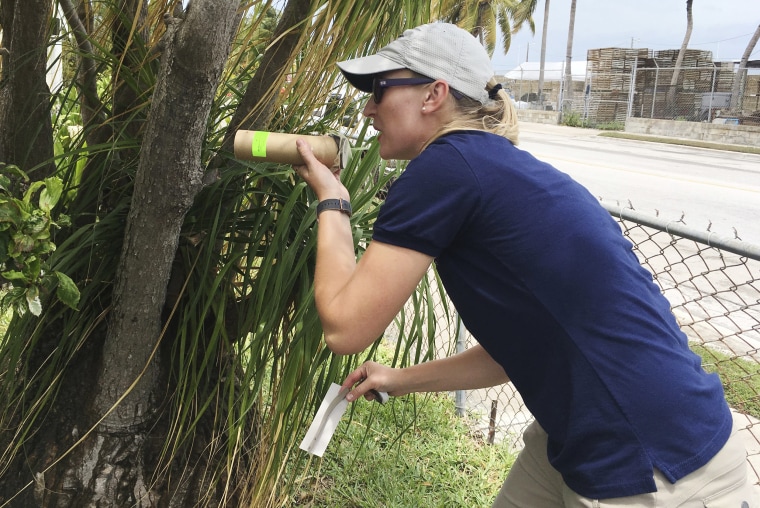Some neighborhoods in the Miami area will get some new mosquitoes in the coming days.
Officials hope the new imports, all males, will rush to mate with female mosquitoes already in the area. The goal is to reduce the mosquito population.
The new mosquitoes carry bacteria that make them produce dud eggs. Over time, studies have shown they can help shrink the mosquito population in small areas.
“The Wolbachia male mosquitos do not bite or blood feed and are incapable of transmitting diseases,” the City of South Miami said in a statement.
Related: Sterile mosquitoes released near Florida Keys
“The released male mosquitoes mate with the female mosquitoes. The resulting eggs do not hatch, which can reduce the mosquito population that can transmit mosquito-borne viruses.”
The mosquitoes are bred by a company called MosquitoMate, formed to commercialize research done at the University of Kentucky.
“MosquitoMate male mosquitoes are not genetically modified. Instead, the MosquitoMate method relies on Wolbachia, which is a naturally occurring bacterium present in up to 60 percent of all the different species of insects around us, including some mosquitoes,” the company said in a statement.
“It is not infectious and cannot be transmitted to any warm-blooded animals or humans.”
While some insects naturally host the bacteria, mosquitoes do not. This program targets Aedes aegypti mosquitoes, which spread Zika, dengue, yellow fever and other viruses.
The approach has helped control mosquitoes elsewhere.
Related: Infected mosquitoes can't transmit Zika
“MosquitoMate has completed successful trials in Kentucky, California, and New York,” the company said.
“Trials have shown significant reduction in the female Aedes aegypti mosquito population. The released male mosquitoes only mate with the females of the same species (Aedes aegypti) so there is no effect on other mosquito species.”
South Miami will start out with a trial, comparing one neighborhood to another.
“The program will designate a one-half-square-mile treatment area and a similarly-sized control area within the City of South Miami,” the city said.
Miami is one of the areas that’s a permanent home to Aedes aegypti. South Florida and South Texas both had home-grown outbreaks of Zika, which causes severe birth defects if pregnant women catch it.
The Wolbachia mosquito project is among several ways scientists are working to change mosquitoes so they transmit less disease.
